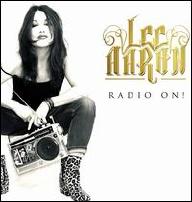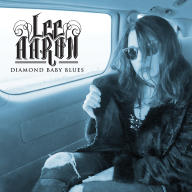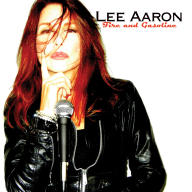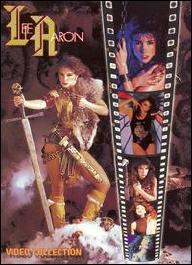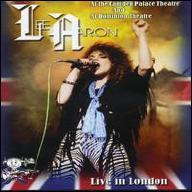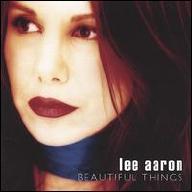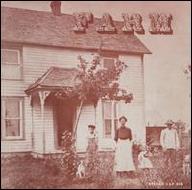Aaron was born in Belleville, Ontario, as Karen Lynn Greening. She started her professional career early, appearing on a televised musical variety show when she was only 15 years old. Two years later, around 1979, Greening became a member of a little-known band called Lee Aaron, playing keyboards, alto sax, and singing harmonies. Over time, Greening was moved from backup singer to lead and also took the band's name, Lee Aaron, as her own. A short time later she went solo, hiring Rick Santers and his band of seasoned Toronto musicians to work with her. Credited to the Lee Aaron Project, she released her self-titled debut in 1982 on Freedom Records. Aided by Aaron's dynamic voice, the album's melodic hard rock made some waves in Canada and in the U.K. where she played the Reading Festival, though it was her harder-edged solo follow-up, 1984's Metal Queen, that proved to be her breakout success. Although she had intended the title track to serve as a statement on female empowerment, Aaron was aggressively marketed by her label and management to play the role of heavy metal sex kitten, and in spite of her efforts to distance herself from it, the "Metal Queen" badge would follow her for years to come. Encouraged to appear scantily-clad in a fur loincloth and clutching a sword on the cover, the naive young artist had her album banned in Australia and given an R rating from the BBC. Still, with the help of a video, and likely from the controversy itself, the title track became Aaron's first big hit. In addition to the notoriety, Metal Queen was also the beginning of a songwriting partnership with guitarist John Albani that would last for the next decade.
Attic quickly re-released her debut album and sent her on a major tour through parts of both Canada and the United States. With Albani serving as lead guitarist and co-writer, she teamed up with producer Bob Ezrin for 1985's Call of the Wild and by the year's end she was touring as opening act for bands high-profile bands like Bon Jovi. Her ascent continued with 1987's eponymous Lee Aaron and reached its zenith with 1989's double-platinum-selling Bodyrock. Bodyrock reached number 32 on the Canadian charts and earned her Juno Award nominations for both Best Video and Female Vocalist of the Year. Over the next few years, Aaron continued to write and record in the heavy rock vein before trying to phase out the "Metal Queen" period and introducing new alt-rock tones into her music with 1994's Emotional Rain. Changing tack, she teamed up with several members of the Vancouver band Sons of Freedom to form the short-lived alt-rock project 2Preciious. Hoping to find some anonymity, she used her given name, Karen Lynn Greening, in the credits of their lone 1996 album. By the 2000s, she had changed styles once more, this time ditching rock completely and performing a mix of blues and jazz. This surprisingly successful reinvention culminated in albums like 2000's Slick Chick and 2004's Beautiful Things, both of which reverted back to the Lee Aaron name. She continued to widen her stylistic range and appeared in a Modern Baroque Opera production of 101 Songs for the Marquis de Sade.
During the latter half of the 2000s, Aaron became a mother and for a time shifted her focus to family matters. Having found success and respect in other musical avenues, she eventually came to a sort of emotional reconciliation with the Metal Queen years and, following a festival performance with hard rock legends Heart, she began to reintroduce her rock hits back into her live sets. Aaron made a successful showing at the 2011 Sweden Rock Fest and in 2016, released Fire and Gasoline, her first studio album of rock music in two decades. She continued with reinvigorated energy into her next studio set, 2018's Diamond Baby Blues, as well as the 2019 live album, Power, Soul, Rock N' Roll: Live in Germany. ~ Charlotte Dillon, Rovi


